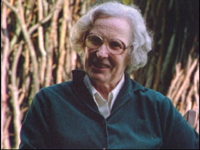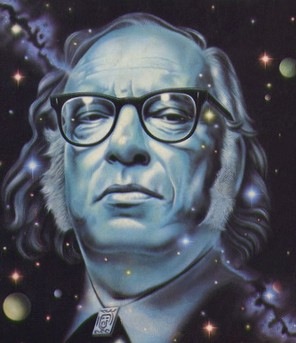Synchronicity and Coincidence

“Synchronicity…means a ‘meaningful coincidence’ of outer and inner events that are not themselves causally connected. The emphasis lies on the word ‘meaningful’.”
–Marie-Louise von Franz (German-born Swiss Jungian Psychologist and Author, 1915-1998)
Knowing Your Personal Mission

“Knowing our personal mission further enhances the flow of mysterious coincidences as we are guided toward our destinies. First we have a question, then dreams, daydreams, and intuitions lead us toward the answers, which usually are synchronistically provided by the wisdom of another human being.”
–James Redfield (American Author, 1950-)
Coincidence

“Having no unusual coincidence is far more unusual than any coincidence could possibly be.”
–Isaac Asimov (Russian-born American Biochemist and Writer, 1920-1992)

“Encyclopedia of Science Fiction” (Robert Holdstock (editor))
The Irreducible Mind
I get a great many requests for recommendations for books and papers that either debate or provide support for the topics that I discuss on this blog and in my books and articles. That is why I’ve been constructing some reading lists at Amazon.com and linking them to this website.
A friend recently commented that she was surprised that the book and CD series, Healing, Meaning and Purpose that was created for a general audience, contains over 800 books and websites. My response to that was that I think that my readers and listeners are all grown ups who should be able to check everything that any author says!
The days of authors or speakers waving their hands about and making airy statements are finally coming to an end. If an author tells you that "science" proves what they are saying, they must show that they understand the topic themselves. I just saw yet another paper in which the writer said, "Quantum mechanics proves what I’m saying, but let’s not get into that." Well, that’s just the point: let us indeed get into that to see if what you are saying holds water!
Which brings me to a book that I’ve just read and reviewed. It is entitled Irreducible Mind: Toward a Psychology for the 21st Century and it is an extraordinary achievement. For the last century, the vast majority psychologists, psychiatrists and neuroscientists have believed that thoughts, emotions and consciousness are the product of physical processes in the brain. And , of course, the brain is heavily involved in many mental phenomena. The question has always been if neurological activity is sufficient to explain the whole of human experience.
This new book presents the most comprehensive and critical analysis of phenomena normally ignored by psychology, including mystical experiences, the placebo response, stigmata and hypnotic suggestion, memories that survive physical death, near death experiences, automatic writing, out-of-body experiences, apparitions, deathbed visions and many more.
It comes to the inescapable conclusion that the mind is not generated by the brain but is instead limited and constrained by it. There is no hand waving, and no "science has shown that…" Instead everything is laid out in front of you. There are a hundred pages of citations and references. Despite that, it is an easy and enjoyable read.
I have no personal connection with the book, but the next time that someone says that there’s no proof for any of these phenomena, and that emotions, cognitions and consciousness are just byproducts of biochemical processes in the brain, refer them to this book.
And if Santa brought you any gift cards that you haven’t used yet, you might want to have a look at the book for yourself.
Karma
The Sanskrit word karma has been part of our vocabulary since the late 1960s. Over thirty years ago I was speaking to one of George Harrison’s lawyers in London, who had followed in the footsteps of the Beatles and flirted with Transcendental Meditation. He told me that karma just meant “fate,” which was not at all what I’d been taught.
I’ve just seen a number of articles that have used the term very loosely. What is even more perplexing is that often the same writer will talk about karma as a causal law, and then immediately start talking about quantum mechanics, in which many actions are not causal at all. Some even start dabbling in synchronicity, forgetting, perhaps, that the subtitle of the original paper by Carl Jung and Wolfgang Pauli was “An Acausal Connecting Principle.”
It’s important to get it right: if we misunderstand a law or principle of life, it’s difficult to stay on track. And we have to realize that although there are plenty of opinions about karma, synchronicity, quantum mechanics and the rest, there are also some real objective facts to guide us.
Let me give you an example of one of these articles: “Karma deals with the law of cause and effect. Everything that happens to us (effect) has had a previous cause. The evolution of karmic law means that we can be master of our own destiny. Your karmic lessons in life reflect the qualities that you either lack, or are weak in, and are those hindering your success…” This is so contradictory. There is no place for chance, yet you can master your destiny, despite the fact that your behavior must have a previous cause. This isn’t just circular reasoning; it’s more like pretzel logic!
So is karma complicated? Is there a simple way to understand it and work with it?
Karma means “action,” and it refers to the intentional acts of conscious beings. These acts may be physical, or they may be thoughts or feelings. Intentions results in acts that cause effects in the mind, the body, the subtle systems, our relationships and our spirituality. This way of looking at karma links inextricably with the evidence being generated by the Global Consciousness Project.
His Holiness the Dalai Lama in his book The Universe in a Single Atom makes a clear distinction between the operation of the natural law of causality, in which some action will have a certain set of effects, and the law of karma, in which an intentional act will reap certain results. He uses a good example: if a campfire gets out of control in a forest, the resulting fire, smoke and charcoal are simple, natural and expected results. By contrast if you light a fire and forget to put it out, which then causes the chain of events: that’s karmic causation.
I this view, the large-scale universe evolves according to causal laws. When it has evolved to the stage of supporting sentient life, now the fate of the universe becomes entangled with the karma of the sentient beings that now inhabit it. But there’s something more to it.
Matter in its most subtle form is Qi or Prana, a vital field energy that is inseparable from consciousness. The Qi or Prana provides dynamic movement and cohesion, while consciousness provides awareness, cognition and self-reflection. This indivisible pair produces our bodies and the universe as a whole. Every particle in the universe possesses conscious awareness, but it is not until sentience arises that the law of karma comes into play.
In Kriya Yoga there has been the development of many complex ideas about karma, subdividing it into multiple types, and with advice on how to attract good karma and dispel the bad. For students who would like to go into these distinctions in more detail, there a very nice short book entitled The Laws of Karma.
Because karma implies that the universe is lawful and moral, it has often been misinterpreted as fatalism. But that s not correct: every decision is a product of free will. To be sure, it is a free will that is tempered by the causal forces of our genetic makeup and environment. One of the major goals of self-development is to free yourself from the restrictions imposed upon you by your genes and your environment, so that you can make decisions that will generate the greatest good for the largest number of people.
What we must not do is to use karma as an excuse. If you are playing a game of cards, you play the hand that you are given. There’s no point in complaining about your bad luck: your learn how to make the best play wit the cards that you have in your hand.
“Knowing that his past actions may try to overwhelm him, the devotee must be prepared to combat them. God will give him the strength: His Name will be an impenetrable armor. It will save him from all the consequences.”
–Swami Brahmananda (Indian Religious Figure, 1854-1922)
“It is horrible to see everything that one detested in the past coming back wearing the colors of the future.”
–Jean Rostand (French Biologist and Historian, 1894-1977)
Intuition, Flow and the Avoidance of Danger
"Flow with whatever is happening and let your mind be free. Stay centered by accepting whatever you are doing. This is the ultimate.”
–Chuang Tzu (Chinese Philosopher, c.369-286 B.C.E.)
There is some intriguing evidence, summarized in a very interesting article that fewer people ride on trains on the days that there are accidents. Even when you take into consideration things like vacations, there still seem to be fewer travelers on days when an accident is to occur. Some people seem to know when it’s not a good day to be traveling: they exercise a form of unconscious intuition that keeps them out of harm’s way.
In the 1971 novel Recoil, Claude and Rhoda Nunes describe a boy called George who is so in tune with the pulse of a city that he arrives every intersection at the precise moment when he can cross; he reaches his destinations without any of the normal delays. And in any shops that he visits, he immediately attracts the attention of an assistant who just happens to be unoccupied. Though this is a novel, it is also a good illustration of the way things can happen for you when you are attuned to the world around you.
At one time I was doing a lot of work in Chicago, which involved visiting various sites in the city. My hosts used to joke about the way that they would normally struggle to find a place to leave the car, but that when I was their guest, we always get “rock star parking.” A space would open up for us in just the tight place at the right time. However, they were not quite right. We invariably did find a parking spot so long as I remained calm and detached, but the moment that either of us became fretful about being late, as soon as emotion was being stirred up, then the parking spots would vanish.
I once learned this lesson the hard way. I had some prized tickets to see a performance at the Royal Opera House in London’s Covent Garden. And on that day, despite everything that I had been taught about how we choose our emotional states, despite all the things that I had tried to inculcate in my students, I forgot the lessons. My last patient of the day had required more help than I expected, the person accompanying me to the performance was very late, the traffic was awful and I became more and more anxious and then irritable. Not surprisingly, on this particular day, there was to be no special parking anywhere and I missed the whole of the first act of a favorite opera. Though painful, this was a valuable lesson.
The spiritual Master or Mistress is in a constant state of flow: being in the right place at the right time. Anyone can achieve this with a little practice. Step one is to gain some control over your emotions. Attunement with your body and with the world around you is difficult until you have been able to develop a measure of control of your emotional states. The best ways that I know for doing that are not simply trying to talk yourself into emotional control, but also to use three extra things: Flower essences, the Tapping therapies and acupressure.
There’s a very helpful little acupressure trick. If you run your fingers along the top of the trapezius muscle that runs from the back of your skull to your shoulder, in the very middle is an acupuncture point: Gallbladder 21. If you find yourself being overwhelmed by emotion, gentle pressure at that point for just a few moments will usually help you re-establish control of your emotions very quickly.
“When you do things from your soul you feel a river moving in you, a joy. When action come from another section, the feeling disappears.”
Jalal al-Din Rumi (Afghan Sufi Poet, 1207-1273)
“To offer no resistance to life is to be in a state of grace, ease, and lightness. This state is then no longer dependent upon things being in a certain way, good or bad. It seems almost paradoxical, yet when your inner dependency on form is gone, the general conditions of your life, the outer forms, tend to improve greatly. Things, people, or conditions that you thought you needed for your happiness now come to you with no struggle or effort on your part, and you are free to enjoy and appreciate them – while they last. All those things, of course, will still pass away, cycles will come and go, but with dependency gone there is no fear of loss anymore. Life flows with ease.”
–Eckhart Tolle (German-born Author and Spiritual Teacher, 1948-)
Manifesting and Prayer
“All will happen as you want it, provided you really want it.”
–Sri Nisargadatta Maharaj (Indian Spiritual Teacher and Exponent of Jnana Yoga and Advaita Doctrine, 1897-1981)
“The spirit is life. The mind is the builder. The physical realm is the result.”
–Edgar Cayce (American Healer, Mystic and Psychic, 1877-1945)
In Healing, Meaning and Purpose, we discuss manifesting: the art of flowing with the Universe to achieve your perfect outcomes. We talked about the limiting beliefs that can prevent us from fulfilling our potential. Do not try and put limits on the help that may come to you. Too often people tell me that they are not seeing any meaningful coincidences or that their prayers are not being answered. The problem is usually that they have decided on the form in which the sign will appear, or of the way in which help will arrive, instead of having an open mind, and remembering that “God works in mysterious ways.”
I have the privilege of delivering hundred of speeches, lectures and workshops each year, but earlier today I was in the unusual position of being in the audience for a really great speech. I was reminded of an old story that appears in Chapter 11 of my forthcoming book Sacred Cycles:
A priest is stranded in his house as the waters of a nearby river are rising rapidly. He can still see out of his first floor window when a rescue boat rows up to his house.
“Get in says the rescuer.”
“No” says the priest, “I’m praying and waiting for God to save me.”
As the floodwaters rise, he moves to the second floor, when he hears the sound of a motorboat containing two rescuers.
“Get in, they say, it is getting worse.”
“No” says the priest, “I’m praying and waiting for God to save me.”
Finally the waters have driven him onto the roof of his house when he sees a helicopter hovering above him.
“Let us winch you to safety,” says the winch man.
“No” says the priest, “I’m praying and waiting for God to save me.”
Finally the helicopter is forced to leave and sadly the priest perishes.
When he arrives in the next world he is angry with God, and says,
“Why didn’t you save me? I prayed with all my might!”
To which he hears this response: “Three times I tried to save you: I sent a rowboat, a motorboat and a helicopter, and you rejected all the help that I sent to you.”
Please do not ever make that mistake. I have had more than one person feel guilty about seeing a physician and taking medications, feeling that they should have been healed by faith alone. Then they have realized that their prayers may indeed have been answered by the provision of medications and a person with the skills to use them.
Before asking for Divine assistance, ask yourself what you can do to help yourself and others: rather than trying to command God and the Universe to do your bidding, try reporting for duty!
“God manifests himself in what is hidden.”
–Thomas Merton (French-born American Trappist Monk and Writer, 1915-1968)
Technorati tags: Manifesting Prayer Synchronicity Sri Nisargadatta Maharaj Edgar Cayce Expectation Belief Thomas Merton
Intuition, Coincidence and Synchronicity
The other day I was enjoying a pleasant dinner with some Indian friends, and we got onto the subject of the history of Kashmir. With us were some American friends who knew little about the subject, so we gave them a quick update on the history of the region. A few minutes later we had moved onto something else, and I mentioned that I had just met an Indian-born English businessman with whom I may collaborate on a project. And that I had just recalled that he and his parents were originally from Kashmir. Later, as the valet brought my car round, the song playing on the radio was Led Zeppelin’s classic song Kashmir.
Some might say, "Ah ha! A Synchronicity!" But they would be incorrect, and this leads us to consider the role of intuition in synchronicity. For an event to be a synchronicity, it must be meaningful. Let me give you an example. I received a flier from Sounds True, a wonderful company in Boulder, Colorado, that specializes in materials to aid personal and spiritual development. I’m a good customer, so they send me a lot of invitations to examine new products. This one was a program by Stephen Wolinsky called Quantum Psychology, and it was based upon the teachings of a Sri Nisargadatta Maharaj, an Indian Spiritual Teacher and Exponent of Jnana Yoga and Advaita Doctrine, who lived from 1897-1981. As far as I know, I had never come across this sage’s teachings before. The material looked interesting, but I had a lot to read and listen to, so I wasn’t convinced that I’d have the time to dedicate to the program. Then, no more than an hour later, I was looking for an unrelated item on the Internet, and up popped Sri Nisargadatta’s name. Shortly after that, I picked up a book on chess, and the author – Jeremy Silman – had dedicated his book to Sri Nisargadatta. A chess book: not some arcane treatise on Indian philosophy. This was enough for me. I always let my intuition do the walking, so I ordered, and Stephen’s material was indeed excellent and provided me with some tools that I could use in my service to other people.
So always keep an eye out to see if the Universe is trying to tell you something, but don’t fall into the rut of assuming that everything is always meaningful. As Sigmund Freud once commented, “Sometimes a cigar is just a cigar.” Coincidences are just that, and it is only when they become meaningful that they can be classified as a synchronicity.
I recommend to students that they should get a small journal or diary and spend just one week watching for coincidences, and then seeing if any of them become meaningful. This is a great exercise for your intuition, and it helps with your powers of discrimination: by making notes ahead of time, it helps you to avoid the trap of the self-fulfilling prophecy.
Technorati tags: coincidence intuition synchronicity Sri Nisargadatta Maharaj Stephen Wolinsky Quantum Psychology self-fulfilling prophecy
Synchronicity
In my forthcoming book, Sacred Cycles: Regaining Health and Harmony by Mastering the Natural Rhythms of Life, I disucss synchronicity as a really important aspect of our lives. The notion of synchronicity, or meaningful coincidences, was first proposed by the famous Swiss psychologist Carl Jung and his friend the Nobel Prize-winning physicist, Wolfgang Pauli. Are there really such connections in our lives, or do we live simply at the whim of random chance in a Universe whose every law has been laid bare by the impassive probing of modern science?
There have been countless attempts by mathematicians and physicists to explain away synchronicity, which some skeptics describe as some sort of refuge of the mathematically challenged. Yet other plenty of other scientists have said, “Wait a minute, there really may be something here.” Or is the whole discussion a pointless comparison of objective mathematical apples with subjective metaphysical pears?
I am very interested in hearing your views as well as any personal experiences.
Technorati tags: synchronicity Carl Jung
A Seaplane in Colombo
In my book and CD program Healing, Meaning and Purpose, I described an event when I was 17 years old, and about to go to medical school. A book – Esoteric Healing – fell from a shelf in our local lending library and struck me as I was walking past. Many years later I related the tale while dining in London with the writer Colin Wilson. He told me that he could trump my story. While he was researching for a piece of information a book also fell off the shelf, but what is more, it fell open at exactly the right page! He also told me of another startling case. The writer Rebecca West was in a library looking for some papers relating to the Nuremburg War Trials. She found that the papers were in chaos, until, in despair she put her hand on a book, seemingly at random, and it opened at the exact page that she was seeking. Three cases are not enough for a critical scientist and they could all be examples of chance. After all, every day there are an awful lot of people in libraries that do not contain flying books! But my intuition tells me otherwise. Although I have examined many alternative explanations, I keep coming back to the idea of synchronicity.
I have another reason for doing so. Shortly after the end of the Second World War, my father had an assignment in Singapore. In those days the flight from London was long and arduous, and involved five separate legs, with overnight stays at each stop. He was about to board a seaplane in Colombo in Sri Lanka, still known as Ceylon in those days, when the captain announced that the plane was too heavy, and that they needed a volunteer to stay behind and pick up the next flight in three days time. My father volunteered instantly. The prospect of an extra three days exploring one of the most beautiful countries in the world, while staying in the plush splendor of the officers’ mess was more than enough of an incentive.
As he was paddled back to shore to start planning his next few days, he waved goodbye to his traveling companions and they all promised to hook up in Singapore. The plane took off, made an abrupt and unexpected turn and moments later crashed and exploded in the jungle. Tragically everyone on board perished. This was many years before I was born, but had it not been for my father’s eagerness to explore a new culture, I would not be here today.
There is an interesting little sidebar here, which shows synchronicity in action. Before Sri Lanka was even known as Ceylon, its old name was Serendip, the root of our modern word serendipity, meaning the faculty of making fortunate discoveries by accident.
Technorati tags: Synchronicity Intuition







